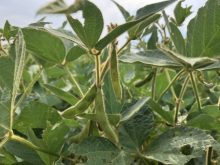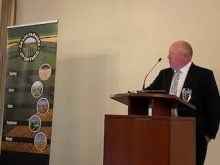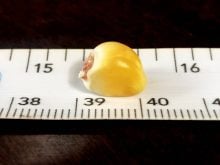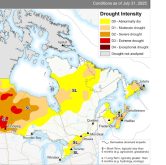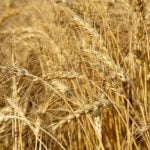Last month, 1400 tonnes of grain was dumped from a freight train onto the trackside in Brittany, France.
Forcing the train to stop before an improvised cinderblock barrier, activists from the umbrella group Brittany Collective Against Factory Farms, supported by Extinction Rebellion protesters, intended to hijack and destroy its cargo of GMO-soybeans.
But the train wasn’t carrying soybeans – it was carrying wheat.
Read Also
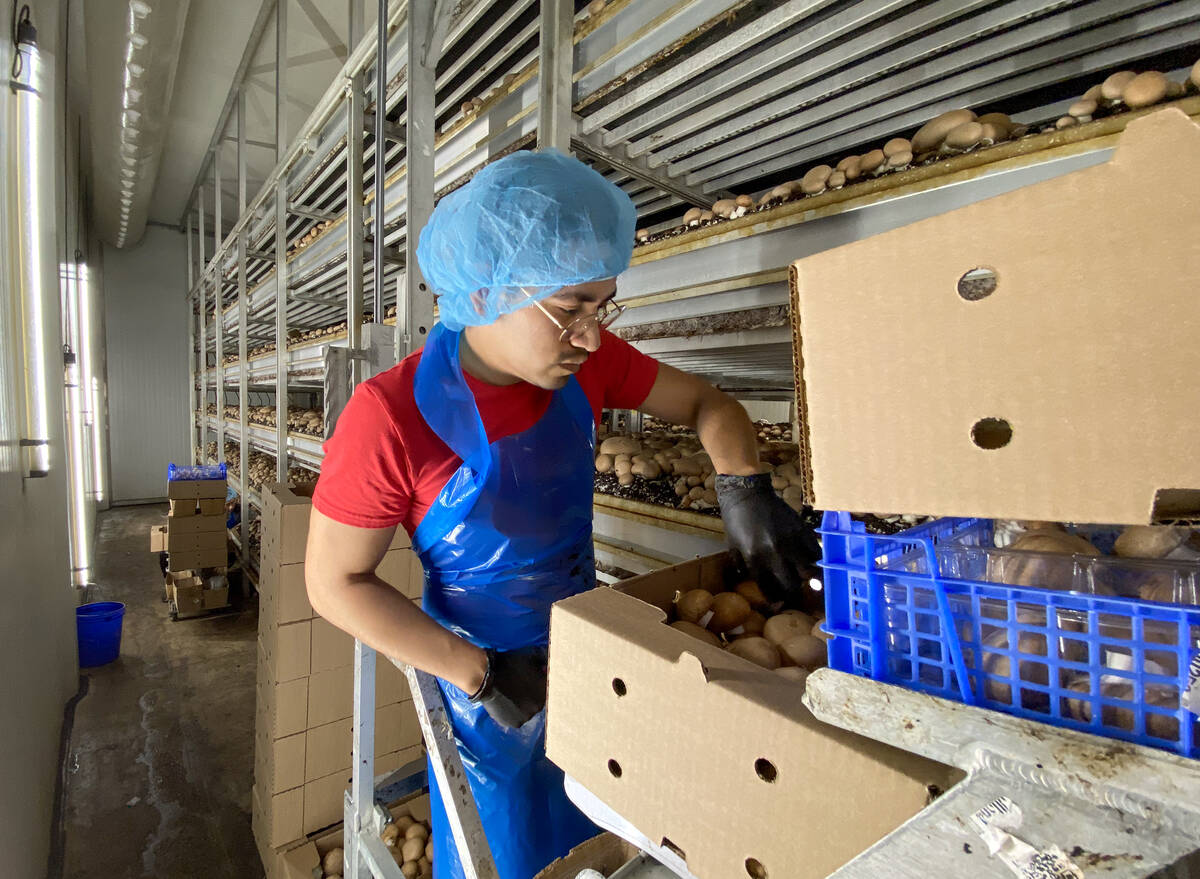
Ontario’s other economic engine: agriculture and food
Ontario Federation of Agriculture president, Drew Spoelstra, says Ontario’s agriculture and agri-food sector should be recognized for its stability and economic driving force.
Why it matters: With a pandemic and war throwing wrenches into the European Union’s current food production strategy, the agriculture sector and proponents of biotechnology might have a better opportunity to influence future policy.
Condemned by many, the action comes at a time when countries across Europe, Africa, and the Middle East face the prospect of severe food shortages, if not outright famine and starvation, thanks to the Putin regime’s Ukrainian war.
As described by European news agency Euractiv, stocks of feed and seed for the approaching planting season are rapidly dwindling in many member states.
Hungary and Bulgaria announced a halt to grain exports. Other countries are looking to new markets, but time is not on their side. Indeed, a March 9 meeting of member state representatives highlighted the particularly tense situation for countries like Cyprus, Portugal, and Spain, where current stocks of animal feed are expected to be exhausted by Easter. For those African and Middle-Eastern states otherwise reliant on Ukrainian or Russian goods, the situation could be dire.
GMOs to the rescue, maybe?
The contrast between the hijackers’ actions and the reality faced by so many millions is stark – and at this point, even further removed from the stop-gap measures some European governments appear to be considering.
Spain, for example, requested exemptions be made to both the EU’s rules on maximum pesticide residue levels and the importation of genetically modified organisms. Doing so would allow greater flexibility in the importation of commodities from countries like the United States.
There are also internal calls to reconsider elements of the EU’s Farm to Fork strategy – an agricultural policy framework aimed at transitioning the continent to an ecologically- friendly food system. French president Emmanuel Macron, as the Financial Times reports, has stated the sustainable food strategy was “based on a pre-Ukraine war world” and should be reviewed to prevent a 13 per cent drop in food production.
As new developments keep flooding in, a question remains – will the combined shocks of the war in Ukraine and COVID-19 push Europe from its traditional opposition to agricultural biotechnology?
“Seeing the EU governments pulling back a bit on some ideological targets demonstrates those were not targets necessarily based in science,” says Ian Affleck, vice-president of biotechnology for CropLife Canada, in reference to the Farm-to-Fork strategy.
“If Farm-to-Fork can’t weather climate or supply chain issues, it doesn’t seem like a truly farm to fork strategy because it fails to get things from the farm to the fork.”
Key to any positive change, from a biotechnology proponent’s perspective, will be whether ideologues and environmental dogmatism will continue to dominate policy discussions. Affleck has some hope reflection and introspection during ongoing crises in global supply chains will lend itself to a more rational dialogue, in part because members of the agricultural community may have a better chance of actually being heard. More aggressively seizing such an opportunity should perhaps be part of the industry’s collective playbook.
“Like the science trust in COVID, I think we’re yet to see how engrained this opportunity for reflection truly is. Does it only last for today’s crises and the ideology returns? When the ideologies are winning the day there’s not much opportunity for ag to be heard,” says Affleck.
Hopefully there will be some sober second thought on how they’re going to achieve some of their high-level goals…We’re not going to achieve them with ideological approaches to agriculture, we’re going to get there with science and innovation.”
Integrating conflict into food policy
The request made by some member states to expedite the approval of new crop varieties for importation is a notable move, says Stuart Smyth, an associate professor and chair of Agri-Food Innovation and Sustainability Enhancement at the University of Saskatchewan.
In an interview with Farmtario, Smyth expressed his lack of surprise for some requests coming from countries like Spain. In the longer term, however, he reflects Affleck’s sentiment with regards to a wider European shift towards acceptance of biotechnology in food production.
“I think it comes down in the European context to who has more political clout – the ministries of the environment or the ministries of agriculture and food? Certainly, we would see within a lot of member states, particularly the member states with dominant voices, the environment matters or has more influence and persuasion within the European system,” says Smyth, citing France’s ban on neonicitinoids and the subsequent collapse of its sugar beet sector as an example of failed ideologically-driven policy.
“A lot of the premise for their policies have been built around global peace. We’re over two decades into the 21st century and war in the developed part of the world is something of our grandparent’s generation. What Russia has done is show the environmentalist [groups] and green parties that civil strife and conflict have to be part of the equation for food security.
“I think that’s what may push a lot of policy makers in the EU to say ‘yeah, in an ideal world peace and harmony is something we could take to the bank every day of the year. Now there’s a considerable level of uncertainty…Even though we said we wanted to cut fertilizer use, we wanted to cut chemical use, reduce land use, maybe that should be something we come back to once this interval of uncertainty is in the rear-view mirror.”





